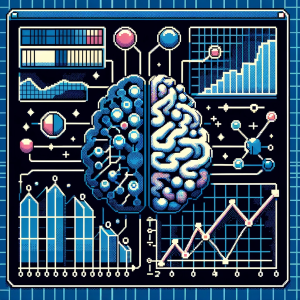
Understanding the Impact of Advanced AI on Legal Text Annotation: A Layman’s Guide
In today’s digital age, Artificial Intelligence (AI) is revolutionizing numerous fields, and the legal sector is no exception. A groundbreaking study titled The unreasonable effectiveness of large language models in zero-shot semantic annotation of legal texts explores the remarkable capabilities of advanced AI models, specifically the latest versions of Generative Pre-trained Transformers (GPT-3.5 and GPT-4), in interpreting legal documents. This article aims to demystify these complex concepts and highlight their real-world implications for the everyday person.
What is Semantic Annotation in Legal Texts?
Imagine having to sift through mountains of legal documents to find specific information – a daunting task even for legal experts. Semantic annotation is like having a high-tech assistant that can read and label parts of these documents, making it easier to find and understand legal information. This technology can categorize sentences in legal documents based on their roles in arguments, types of contract clauses, or the nature of statutory provisions.
The Power of GPT Models in Legal Text Analysis
Traditionally, analyzing legal texts for specific information has been a manual, time-consuming, and expensive, limited to well-resourced legal teams. However, introducing AI models like GPT-3.5 and GPT-4 is changing the game. These AI models can understand and categorize legal texts without prior training on specific legal data, a method known as “zero-shot learning.”
GPT-4: A New Benchmark in Legal AI
The study found that GPT-4 outperforms its predecessors in annotating legal texts. This means it’s more accurate in understanding and categorizing different parts of legal documents. Surprisingly, a more cost-effective model, GPT-3.5-turbo, showed comparable performance to the more expensive models, making advanced legal text analysis more accessible.
Real-World Implications: Democratizing Legal Analysis
For legal professionals, this technological advancement means a significant reduction in time and cost for reviewing contracts, analyzing case laws, or researching statutes. It also opens up opportunities for smaller legal teams and individual practitioners to access sophisticated legal analysis tools previously available only to large firms.
For the general public, this AI technology could lead to more accessible and understandable legal information. It could help simplify complex legal language, making it easier for non-experts to comprehend their legal rights and obligations.
The Future of AI in Law
While this technology is not without limitations – it’s not yet perfect in its analysis and might still require human oversight – the potential is enormous. It could lead to more efficient legal processes, lower costs for legal services, and greater access to legal information for everyone.
Conclusion
The study “The unreasonable effectiveness of large language models in zero-shot semantic annotation of legal texts” showcases an exciting advancement in AI’s role in the legal field. As these technologies continue to evolve, they promise to make legal information more accessible and understandable for professionals and the general public, democratizing legal knowledge in previously unimaginable ways.
Lots more science on the way!
Dive into the world of science with “This Week in Science.” Our newsletter, tailored for educators and avid learners, is a weekly compilation of groundbreaking research, innovative findings, and inspiring stories from the scientific community. By subscribing, you can access a wealth of knowledge that can reshape how you teach, learn, and appreciate science. Sign up at no cost and start your journey towards a more informed and engaged relationship with science today.



